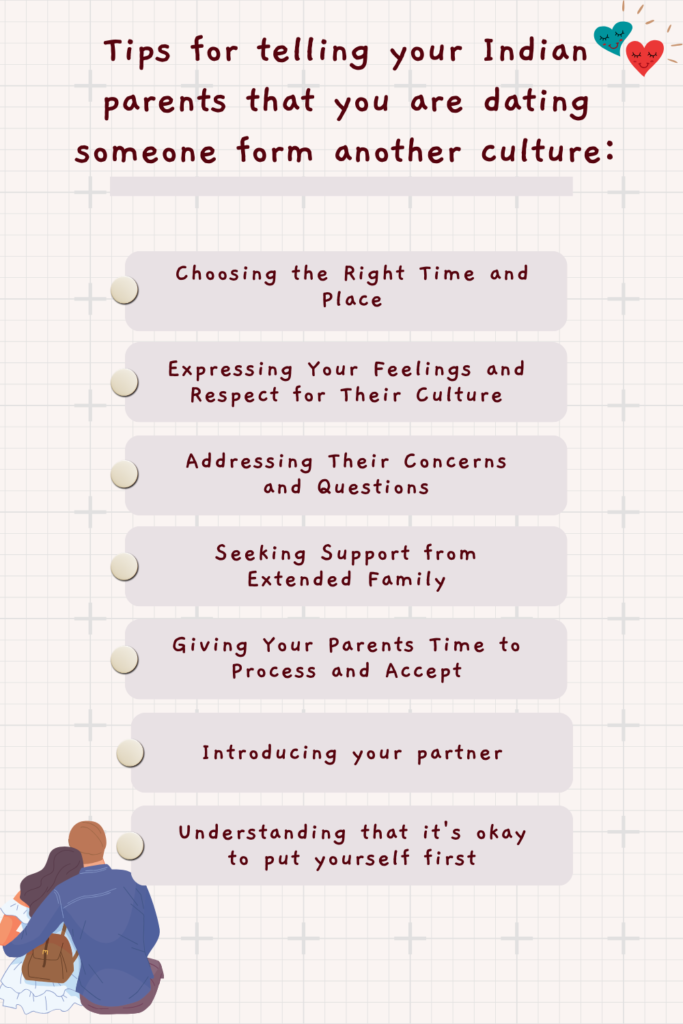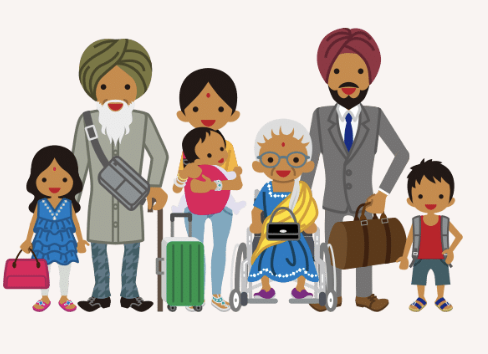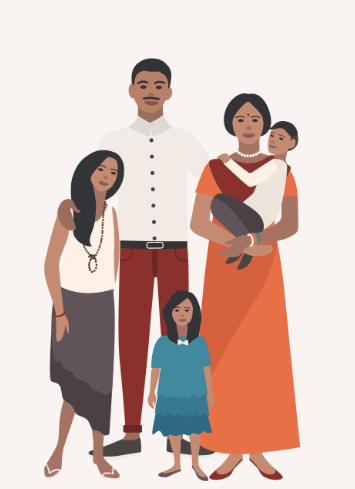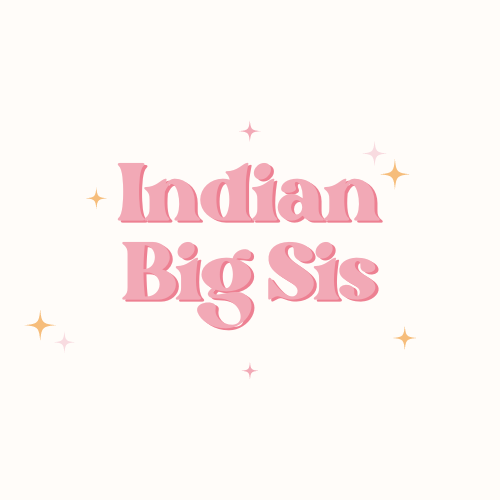
In Indian families where tradition and cultural heritage play a significant role when someone gets married, navigating the conversation about dating someone from another culture can be a sensitive topic. To cause less stress, approach this discussion with acknowledgement of your parents feelings, while owning your feelings and relationships. Having this conversation is an important step in taking your relationship to the next level and building a strong foundation for the future.
- Understanding the important of family in marriage:

In Indian culture, marriage is not just a union between two individuals but also between two families and communities. It is seen as a way to maintain cultural continuity, pass on traditions and values to future generations, and strengthen social bonds. When discussing intercultural dating with your parents, it is important to acknowledge the significance of marriage in Indian culture and how it differs from individualistic perspectives on marriage.
Recognize the cultural significance of marriage in Indian culture and how your decision may impact your family. Acknowledge their feelings and concerns, and explain how you plan to maintain your connection to your cultural heritage while building a life with your partner.
Emphasize that while you respect and value the traditions and importance of marriage in Indian culture, you also recognize the potential benefits of diversity in building strong and fulfilling relationships. Highlight how individuals from different cultural backgrounds can enrich each other’s lives through sharing new experiences and perspectives. Explain how this can lead to personal growth and a deeper understanding of different cultures and traditions.
- Key an open line of communication when you tell them:
Start by expressing your feelings for your partner and explaining why you have chosen to be with them. Be honest about your emotions and the positive impact your partner has had on your life. This can help your parents understand the importance of your relationship. Keeping an open line of communication will help build trust with your parents on relationships.

While cultural differences are important to acknowledge, it’s also crucial to emphasize the shared values and goals that you and your partner hold. Explain how your partner supports your personal growth and how your relationship is based on mutual respect and love.
3. Introduce Your Partner:

Allow your parents to get to know your partner personally. Before introducing your partner, set them up to win! Provide your partner with information about your family’s cultural background, values, and expectations. Share any concerns or potential challenges you anticipate, and discuss how you plan to address them together.
Planning an activity or event can provide a relaxed and natural setting for your partner and parents to interact. Consider something that allows for conversation and interaction, such as a meal or a cultural event.
4. Seek Support from Relatives:

Identify relatives who are likely to be supportive of your relationship and willing to help you introduce your partner to your parents. Consider relatives who have experience with intercultural relationships or who have progressive views on cultural diversity. You could even consider requesting the presence of supportive relatives during the introduction to provide a sense of support and solidarity. Their presence can help create a positive and welcoming atmosphere for your partner.
There may be some initial resistance or concerns, and that’s totally normal. But if you approach this conversation with openness and honesty hopefully you’ll parents will be supportive and love your partner like you do.
